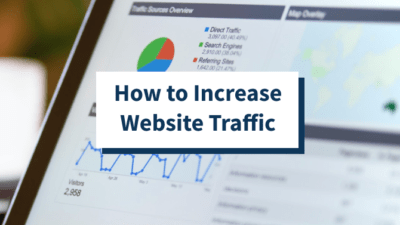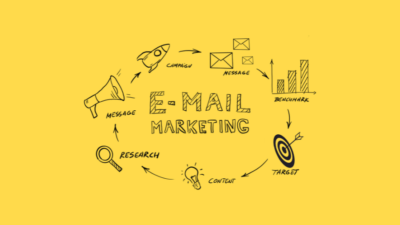John Mueller from Google shared his opinions on SEO for AI overviews and highlighted how important search marketing will be in 2025.
Google talked about SEO for AI Search in a YouTube interview. They also chatted about what SEOs should prioritise in 2025, based on what users are seeking.
The discussion was on Mike Grehan’s new marketing podcast, Inside Marketing With Mike Grehan. Mike is a search marketer known for co-founding a search marketing organization and for his popular interviews with Google search engineers.
John Mueller Affirms The Necessity Of SEO
Mike got straight to the point in the discussion by asking what the search community should be focusing on in 2025, jokingly asking if SEO is finally dead. While Mueller obviously didn’t say that search was dead, he and a couple of the other participants in the discussion did acknowledge that SEO is undergoing profound changes.
John Mueller said that he thinks that many in the general public may wish that SEO was dead but that they don’t realize that search optimization has a positive effect, implying that it helps Google surface the websites the public wants to see.
He answered:
“SEO is Dead… I don’t think SEO is dead. I think one of the challenges is lots of people online wish SEO were dead, but they don’t realize that it’s… it’s almost like driving so many of the things that they’re doing online. Where they they notice when something is weird in search or when something is weird on the Internet and they’re like, oh, this is pesky SEO. And they don’t realize all of the things that actually work well because of some of the work that SEO’s do.”
Technical SEO Is Still Important
Mueller indicated that technical SEO will remain significant for both search engines and AI search. He also pointed out that SEO will play a crucial role in providing access to large language models that rely on content from the Internet.
He continued:
“So I think from my side, what people should be doing this year, is kind of hard to say exactly. But I think a lot of the technical SEO stuff definitely continues to make sense. I think a lot of that continues to make sense also with regards to all of the AI things that are happening, all of the different kind of large language models that are trying to train off of the Internet like they need that foundation of technical SEO.”
How SEO Needs To Evolve
Mueller then discussed what search marketers must do to adapt to the current landscape shaped by artificial intelligence.
He offered the following insights:
“I think what is also important is to try to figure out like what is the value that you want to get out of the Internet. And …the easy aspect that SEOs have been focusing on in the past is like I want clicks, I just want like lots of clicks. And clicks alone is not really what is driving value for a lot of websites.
So that’s almost like a subtle mindset change of going from clicks to trying to figure out what is the value that I want to get out of it.”
Mueller was addressing the limited viewpoint that SEO has often disregarded aspects that don’t directly lead to measurable traffic or links. This narrow focus is partly due to client expectations from SEO, but it’s also perpetuated within the SEO community, where discussions often revolve around KPIs, or Key Performance Indicators. For SEO, these KPIs typically include organic traffic, rankings, and clicks from search results.
What ends up happening is that, at best, SEOs are stuck in their own bubble, only doing part of the necessary work to attract traffic to a website. At worst, they aren’t doing anything at all to promote the site and help it succeed. It’s important for SEOs to embrace the promotional aspect and consider what the site truly offers to users.
Mike Grehan remarked:
“Wouldn’t it be nice if people stopped thinking about SEO as just a traffic driver, just throwing numbers and actually thought about it more with a marketing and a more scientific mind?”
Time To Become Real Marketers
Something that Mueller has advised in the past for those who wanted to grow traffic to new websites is to get out there and promote it. Promotion is more than just SEO.
Ryan Jones of Razorfish and founder of the SERPRecon SEO tool (LinkedIn profile) agreed with Mueller that SEOs need to get out of the traffic and clicks bubble, encouraging listeners to add more marketing to their mix.
Ryan said:
“I think it’s time we become real marketers. We’ve been spoiled for so long where we focus on lower funnel and attribution. And you know, no one ever asked TV how many clicks or visits they got when they run a Super Bowl ad, you know? And even paid search too, in effect, gets away with it.
In SEO if we say, hey, if we’re not there, our competitor might be there. Like OK. Great. How many clicks is it gonna get? But on on paid media, we can say, well, if we’re not there, our competitor will get there and they’ll say here’s $1,000,000. Go, go be there, right?
And so I think it’s time we evolve SEO to be full funnel. We gotta start thinking about user intent, what users want, do real marketing. It’s not enough to focus on clicks, and we’ve been spoiled. We’ve we focused so much on tactics, right?
To go back to ‘is SEO dead,’ if all you thought about is tactics to get clicks and links and rankings, then yeah, it’s dead. But if you thought about giving users what they want, then no, it’s not dead. It’s evolving.
So …that stuff is important, but I think, to bring it home… We have to do real marketing. It’s not enough to just do last click attribution like we have been in the past, we got to be real marketers and that excites me because I think you know at a large agency or with all of our backgrounds, I think we’re all well positioned to be real marketers because we’ve been doing that.”
Face The SEO Reality
Ryan Jones pointed out that it’s important to acknowledge that people are increasingly less interested in visiting websites and more focused on obtaining information. He argued that the traditional role of websites no longer aligns with what users desire, so SEOs need to be realistic about this shift. The irony in his statement is that while SEOs often discuss user intent, they have not kept pace with the actual needs and preferences of users.
He said:
“When I search “when is the Super Bowl” I want to know it’s February 9th. That’s it. End of task. I’m done. …What I don’t want, and go click the first, second, third or 4th result for this, I promise you’ll get it, what I do not want is a website with an overlay ad, a cookie consent notice, and opt in to click in your alerts, an e-mail signup form, and seven paragraphs of unrelated text before it tells me it’s February 9.
…Nowadays… people just want the …answer, they don’t actually want the website. And a lot of SEOs haven’t kept up with that shift or paradigm. …we lost track of what the user actually wants.”
John Mueller Discusses SEO For AI Overviews
Mike Grehan then posed the question that everyone is curious about: how to optimize for AI Overviews. John Mueller suggested approaching it in the same manner that SEOs optimize for featured snippets.
Mueller said:
“I just want to say that all of these discussions we had, I don’t know what was it like 5 or 10 years ago? Featured snippets. It’s basically the same thing, right?
It’s like this is very visible on top and it’s like, ‘I hate it.’ And then a year later, everyone’s like, oh, how do I get in and how do I optimize for it? How do I appear more visibly?
And my feeling is… without kind of any big crystal ball, is that this is something that is going to evolve in a similar direction and I think user expectations definitely change. I think AI type answers make sense for a lot of queries and that’s going to be frustrating for some sites that focus on those queries, kind of like with featured snippets as well. And that also provides a lot of opportunities.
And I also think that’s something where kind of like the different levels of SEO that you’re working at they continue to make sense. Like at a low level you work on a lot of technical issues which remain the same and then you move up to more strategic approaches where you try to figure out like what direction you should go.”





